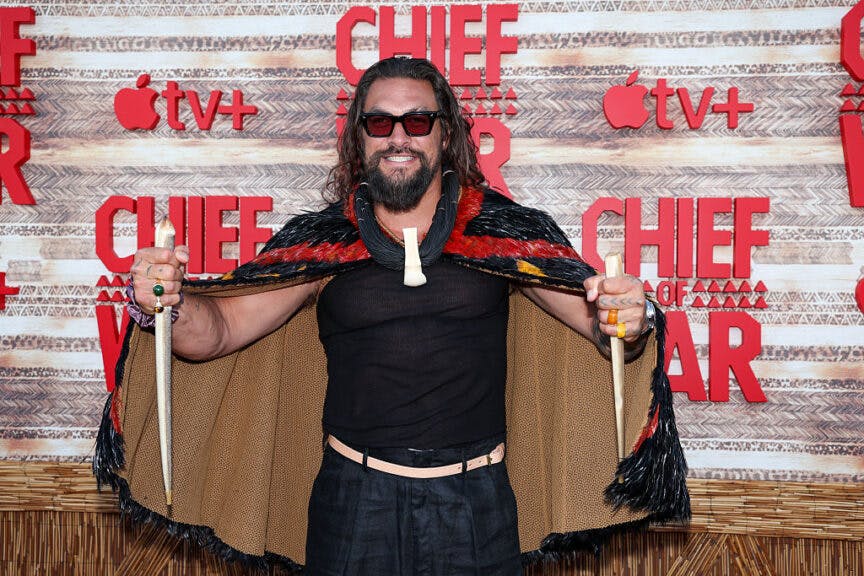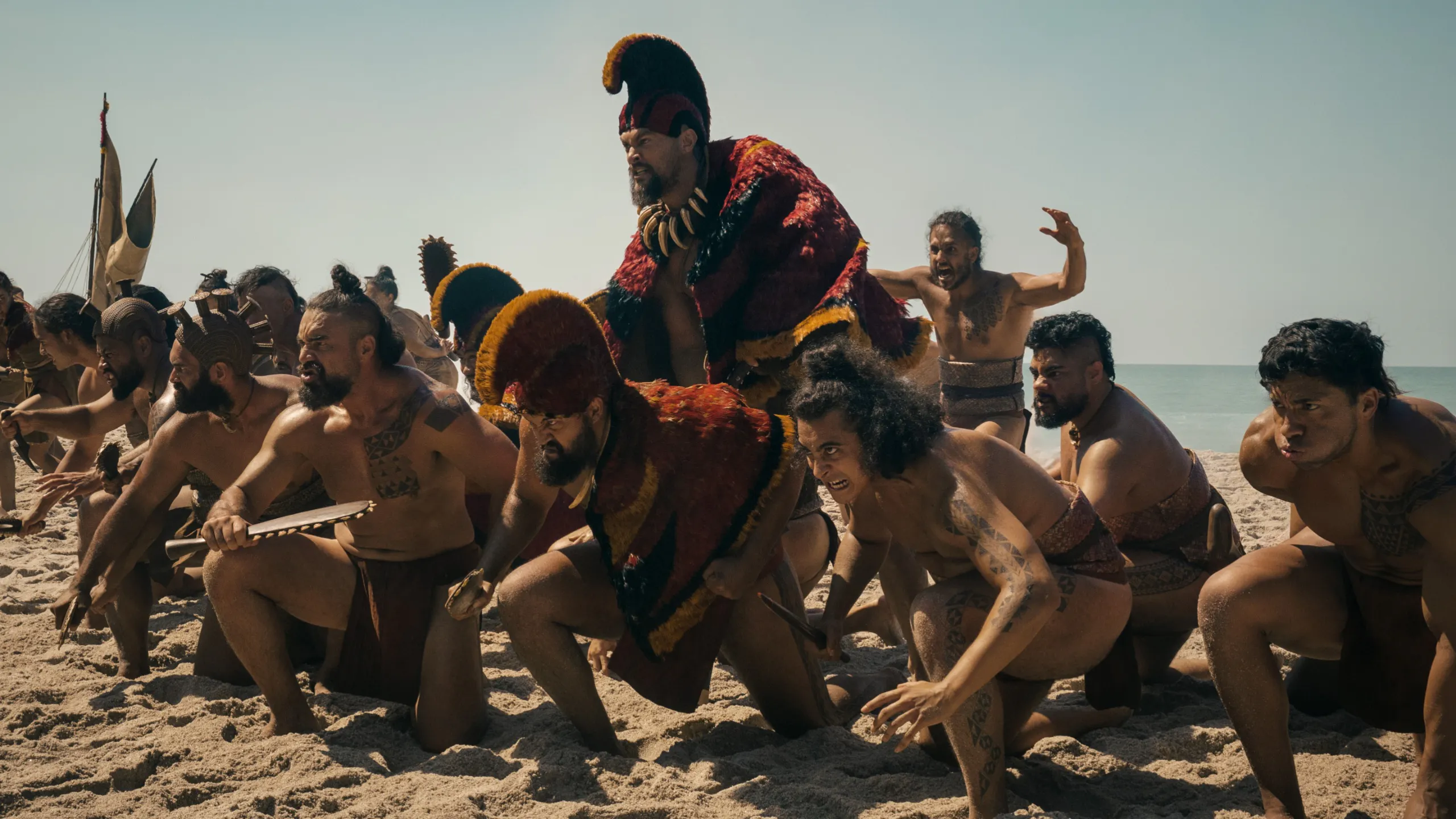When Warrior Chief Kaʻiana discovers he’s been manipulated into massacring the peaceful villagers of the island of O’ahu, Apple TV+’s “Chief of War” reveals a disturbing truth about power that transcends any single culture or era. This historical drama, starring Jason Momoa, follows the former Kauaʻi chief who made his home on Maui in self-exile, disgusted by the violent nature of Kauai’s King Kahekili. When Kahekili draws him back under false pretenses — claiming the young king of O’ahu poses a threat to Maui — Kaʻiana reluctantly participates in what becomes a massacre that turns out to be a peaceful farming community whose king honored the same peaceful ideals Kaʻiana himself embodied.
Set against the backdrop of increasing British arrivals and the looming unification of Hawaiʻi under Kamehameha I, the series examines the collision between noble intentions and brutal realities. Kamehameha’s unification campaign involved systematic warfare across the island chain, employing both traditional Hawaiian tactics and newly acquired Western firearms — a cruel irony that mirrors the show’s central themes of violence in pursuit of ostensibly noble goals. This historical trajectory proves grimly prophetic: the unified Kingdom of Hawaiʻi eventually fell to American and European colonization in 1893, became a U.S. territory in 1898, and was subsequently admitted as a U.S. state in 1959 — exactly as the native Hawaiians had feared when they first witnessed increasing numbers of white men discovering their islands.
“Chief of War” weaves together several powerful themes: preserving the cultural identity of native Hawaiian people, examining the practical ideals of unification alongside the horrific violence that ensued in this pursuit, and exploring the moral complexities of leadership during times of both internal warfare and external threats from forces seeking to subjugate the kingdom. These themes resonate well with contemporary American political discourse, where we continually hear from the progressive left that America is fundamentally a nation of occupiers and usurpers — a country built on the backs of those it has enslaved and subjugated, requiring comprehensive amends for historical injustices against enslaved blacks, native Americans, and islanders now under its rule. This narrative has shaped everything from reparations debates to land acknowledgments, creating a political narrative that often reduces complex historical realities to simple victim-oppressor dynamics.

KAPOLEI, HAWAII – JULY 18: Jason Momoa attends the world premiere of the Apple TV+ drama series “Chief of War” at Ko Olina Beach Park on July 18, 2025 in Kapolei, Hawaii. (Photo by Darryl Oumi/Getty Images)
While America should fully acknowledge its horrific past of enslavement, betrayals, and subjection of indigenous peoples, these actions represent examples of the universal human condition rather than uniquely European evil. In “Chief of War,” we witness the violent, power-hungry Kahekili betraying his own nephew, manipulating him as an instrument of war against the peaceful people of O’ahu. This demonstrates that even without the threat of European colonization, the capacity for both evil and good exists within all cultures and peoples. The primary difference lies in scale — violence, war, and betrayal among a small group of islands operates by the same moral principles as similar actions across an entire continent.
This pattern of moral complexity extends particularly to American slavery. Few Americans are aware that without direct African involvement, there would have been no trans-Atlantic slave trade. Professor and historian Henry Louis Gates Jr. notes in a New York Times opinion article that colonial conquests of Africa’s interior didn’t occur until the late 1800s. For centuries prior, European explorers remained close to coastal forts, depending entirely on Africans to sell those they had enslaved to European traders who would transport these slaves to the New World — accounting for 90% of the slave trade. Gates poses the salient question we should all consider: why do Americans place blame solely at the feet of Europeans when their success was entirely dependent on the slave-trading kingdoms of western and central Africa?
Similarly, we should also examine the argument that pre-Columbian America was entirely populated by peaceful natives prior to European colonization. Historical evidence reveals this narrative is incomplete. While European arrival undeniably brought devastating new diseases, conflicts over land, and systematic violence as settlers expanded into the continent’s interior, warfare and conflict among tribes existed long before this period. Archaeological evidence confirms ongoing competition for resources and territorial disputes among various Native American tribes.
This analysis doesn’t suggest that Europeans were justified in their atrocities against other people groups. America’s history is written in blood, and there can be no denial of the utter brutality involved in its making. However, judging historical figures by contemporary moral standards is highly problematic. All humans are creatures of their time, and many of us descend from those who formed America, for good or ill. Thus, no one in the present day can reasonably (or should) claim how they would have responded to any given circumstance in the distant past.
We must recognize there is only one race — the human race — and only one condition — the human condition. “Chief of War” reminds us that moral complexity, the capacity for both violence and nobility, isn’t unique to any particular people — it is the universal burden and potential of being human. “Chief of War” ultimately challenges viewers to abandon the comfortable simplicity of America’s increasing echo chambers of tribal thought by embracing the difficult work of understanding humanity’s capacity for both cruelty and compassion across all cultures and eras.
* * *
Walter Myers III is a Senior Fellow at Discovery Institute.
The views expressed in this piece are those of the author and do not necessarily represent those of The Daily Wire.

Continue reading this exclusive article and join the conversation, plus watch free videos on DW+
Already a member?

.png)
.png)

